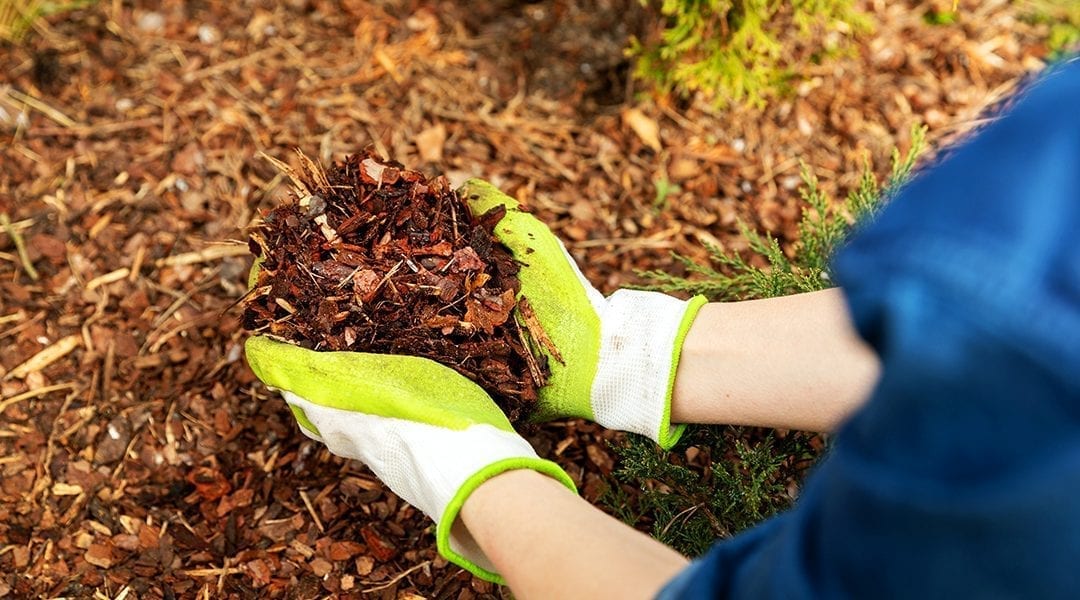Growing a healthy garden is the best way to prevent disease. Rather than waiting for pests to arrive, you can discourage them by improving your soil, pruning proactively, or making simple changes to your watering techniques. The presence of a pest or disease often tells you that your garden is missing something, so instead of waging battle, try these methods for controlling them naturally!
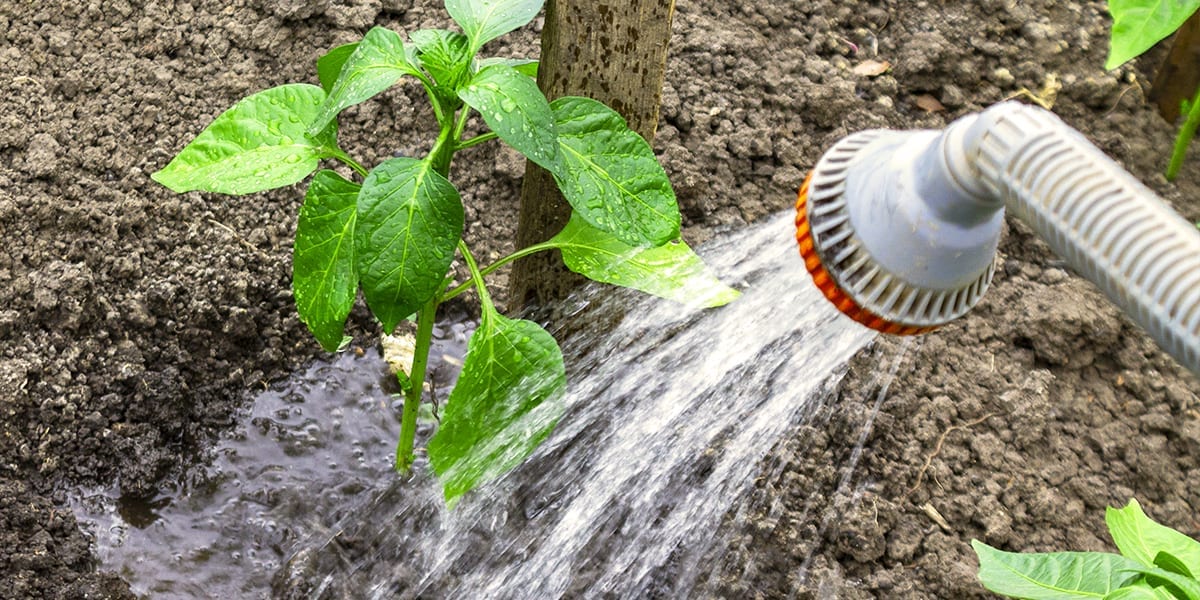
Water the Soil, Not the Plant
Watering is not as simple as you think. Standing moisture on plant leaves can harbor unwanted disease, so aim at watering the soil of a plant, rather than wetting the foliage. If you use a sprinkler, run it in the early morning so that the leaves can dry under the daytime sun. Running sprinklers in the evening will keep plants wet all night and invite moisture-loving slugs, fungi, and insects to your yard.
Mulch for Plant Health
Mulching can benefit your garden in many ways. It suppresses weeds around your plants, retains moisture, and nourishes your soil as it breaks down. Mulch also prevents soil-borne fungi from splattering on leaves during rain or watering. To prevent issues like black spot on roses, or to nourish the growth of a new tree, apply a generous layer of mulch around the base. But be sure to spread it evenly, and leave a gap around the stem, as mounding encourages stem rot and directs water away from the roots.
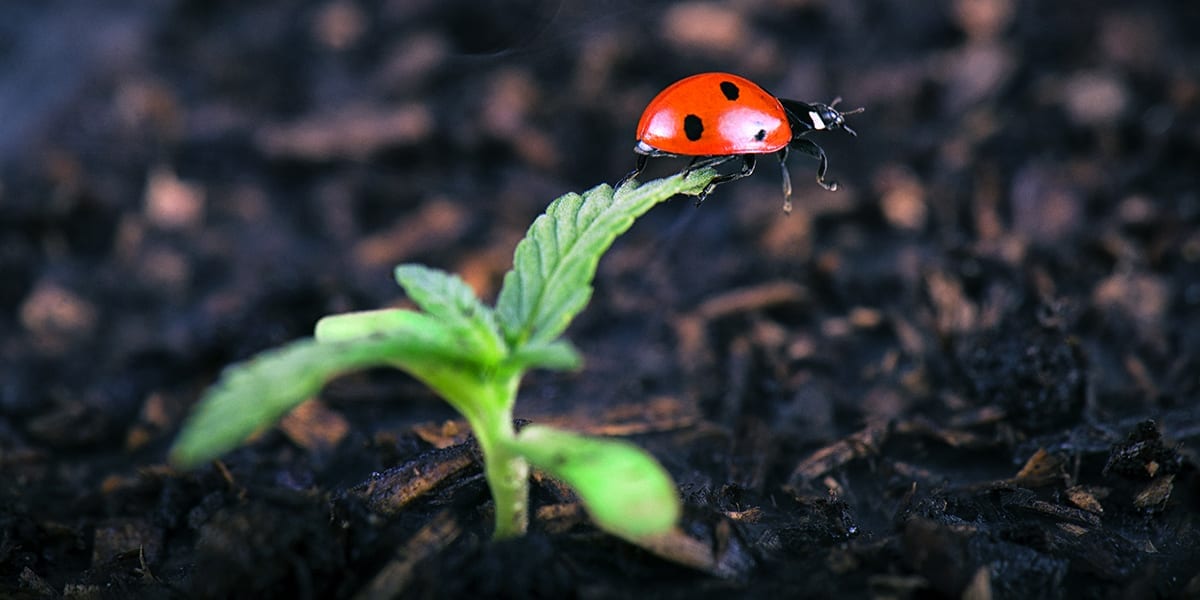
Attract Beneficial Insects
Not all insects are pests. In fact, a diversity of bugs is one of the best signs of a healthy garden! Predatory insects like ladybugs and lacewings love fragrant herbs and flowers like dill, coriander, yarrow, and golden marguerite. They can help control aphids, whiteflies, leafhoppers, and Colorado potato beetles. Damsel bugs that feed on cabbage worms love caraway, fennel, and spearmint. A host of other insects—from ground beetles to praying mantis—can serve as natural pest managers, if you attract them with their favorite plants.
As a rule, a greater diversity of plant life supports a broader range of insects. To provide habitat for their full life-cycle, leave a few messy patches in your yard where they can hide.
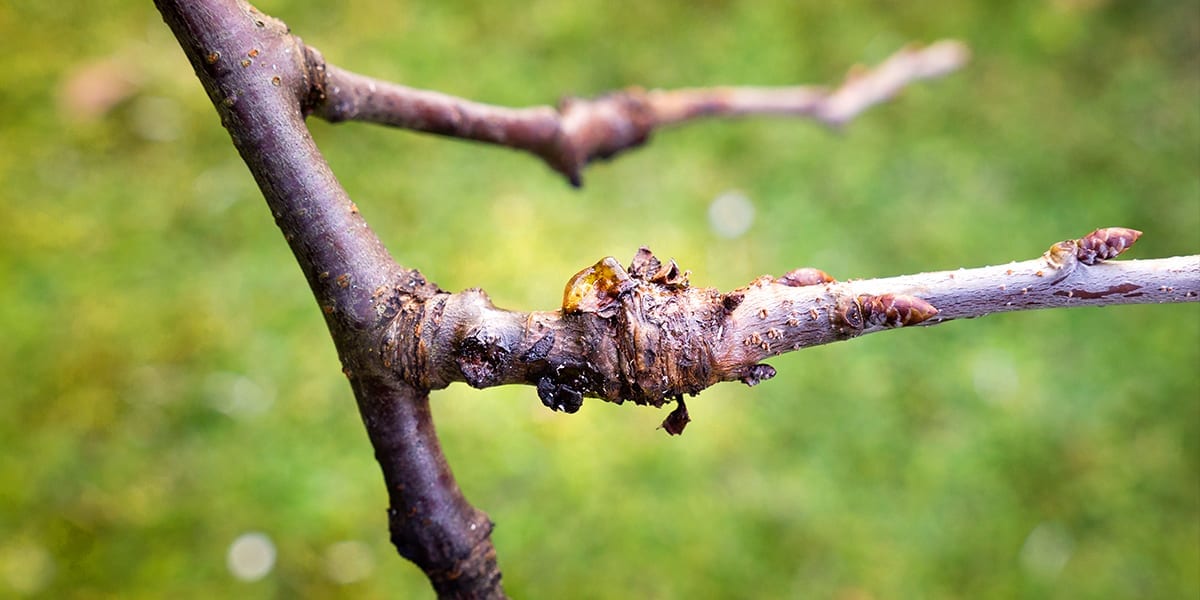
Scout and Prune Often to Prevent Disease
If you see powdery mildew or spotty tomato leaves, remove the infected leaves early so that they don’t spread. The same goes with black knot or other fungal infections; it’s best to prune them away before they infect other limbs. Be sure to sanitize your clippers afterward to keep your other plants healthy.
Maintain Good Soil Quality
Healthy soil for a plant is like a healthy immune system for the human body. Reducing tillage and feeding your soil with compost are great ways to start. Choosing the best mulch, such as grass clippings, straw, leaves, or bark, depends on your soil characteristics and the plants you grow. As each of these materials decomposes, they feed your soil’s microorganisms and add nutrients in different ways. Healthy soil gives your plants the strength to outcompete weeds.
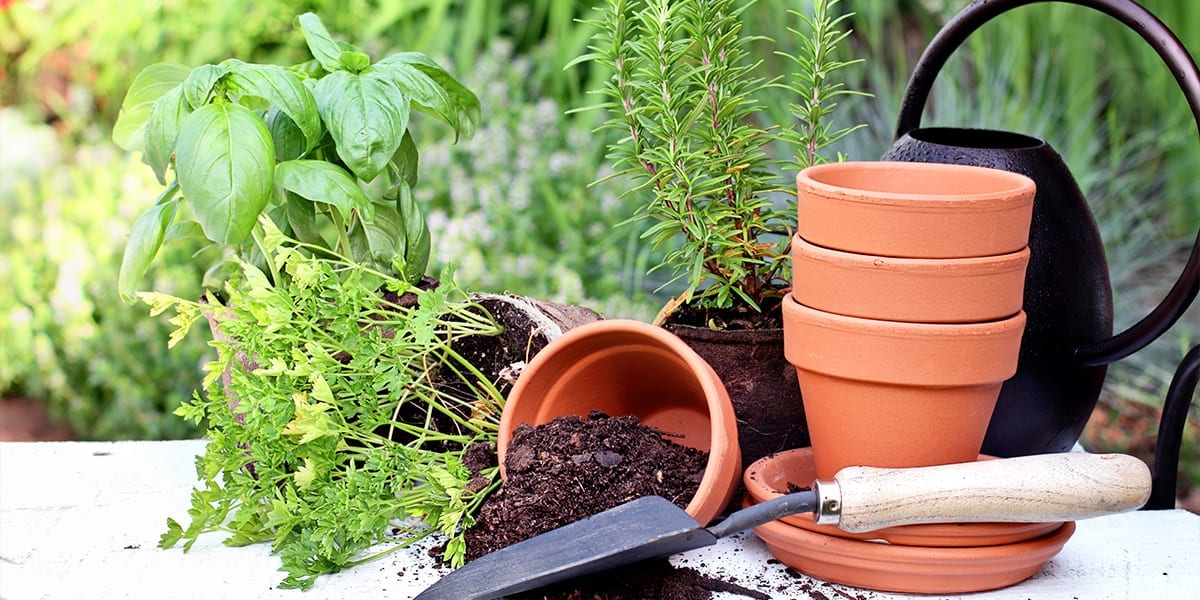
Use Companion Planting to Repel Pests
Plants in nature benefit from growing in communities, and so do your garden varieties. Companion plants attract predatory insects, as mentioned above, to help another plant grow. Sometimes the fragrance of plants themselves—like lavender, oregano, thyme, dill, and rosemary—deters pests like voles, mice, and deer. The presence of especially potent plants like onions, chives, or garlic can repel invaders of your roses and fruit trees. But these examples are only a few of the many time-tested pairs, like tomato and basil or beets and broccoli, that benefit from each other’s company.
Like all aspects of gardening, pest prevention takes a little forethought and planning. Our Illinois weather always gives us unexpected twists, but often our own gardening choices determine which plants, fungi, and insects we host. Rather than evicting intruders after they arrive, we can let our garden flourish from the beginning—and our garden centers can help you! Sometimes this involves changing our practices, but often it’s an opportunity to invite more companion plants and insects to help us.
Platt Hill Nursery is Chicago’s premier garden center and nursery.

